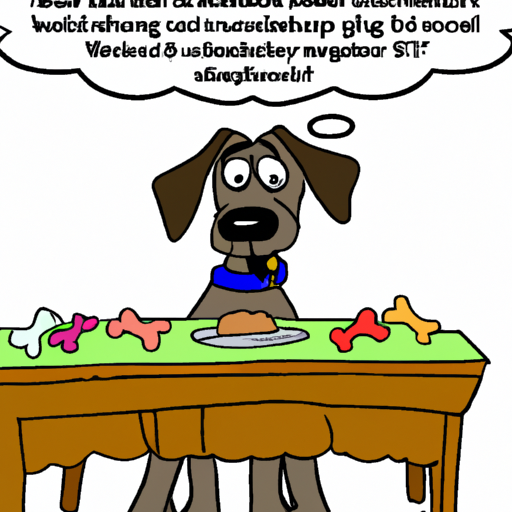Understanding Your Dog’s Eating Behavior
You’ve probably noticed your dog’s insatiable appetite. Even after eating a full meal, they’re still sniffing around for scraps. This behavior may seem like greed, but it’s actually an instinctual trait that can be traced back to their ancestors.
Dogs, like wolves, are opportunistic eaters. In the wild, there’s no guarantee when or where their next meal might come from. So they eat as much as they can when food is available. This behavior has carried over to domestic dogs. However, it’s important to note that constant overeating can lead to obesity and other health problems.
The Role of Diet in Dog’s Greediness
A balanced diet is crucial for your dog’s health. But how does it affect their perceived greediness? Dogs, like humans, crave a variety of nutrients and flavors. If their diet is lacking, they may seem more greedy because they’re trying to satisfy their nutritional needs.
- Protein: Dogs need a high-protein diet for muscle development and energy.
- Fats: Essential for skin and coat health.
- Carbohydrates: Provide energy and aid digestion.
- Vitamins and minerals: Necessary for overall health and wellbeing.
Training Your Dog to Eat Slowly
In some cases, dogs may eat quickly out of competition with other pets in the house, or because they’re anxious. Eating too fast can lead to serious health problems like choking and gastric dilatation-volvulus (GDV). Here are some tips to slow down your dog’s eating:
- Use a slow-feed bowl
- Implement feeding puzzles or toys
- Hand feed them
- Divide their meals into smaller portions
Is Your Dog Actually Hungry or Just Greedy?
| Signs of Hunger | Signs of Greed |
|---|---|
| Weight loss | Stealing food |
| Changes in behavior | Begging |
| Increased aggression | Eating too quickly |
It’s important to differentiate between genuine hunger and greed in dogs. If your dog is losing weight or displaying changes in behavior, they might be truly hungry. Consult with your vet to rule out any underlying health issues.
How to Prevent Overeating in Dogs
Preventing overeating can help curb your dog’s perceived greediness. Here are some strategies:
- Stick to a feeding schedule: Dogs thrive on routine.
- Don’t free feed: Leaving food out all day can encourage overeating.
- Measure meals: Ensure your dog is getting the right amount of food based on their age, weight, and activity level.
- Avoid table scraps: Human food can be high in calories and harmful to dogs.
FAQs
Why does my dog eat so fast?
Dogs may eat fast due to competition, anxiety, or instinct. It’s important to train them to eat slower to prevent health issues.
How much should I feed my dog?
The amount of food your dog needs depends on their age, weight, and activity level. Consult with your vet to determine the right amount.
Is human food bad for dogs?
Some human foods can be harmful or even toxic to dogs. It’s best to stick with dog-approved food and treats.
What should I do if my dog is always hungry?
If your dog seems constantly hungry, it could be a medical issue. Consult with your vet to rule out any underlying conditions.
Can dogs become obese?
Yes, dogs can become obese if they overeat and don’t get enough exercise. This can lead to serious health problems like diabetes, heart disease, and arthritis.



